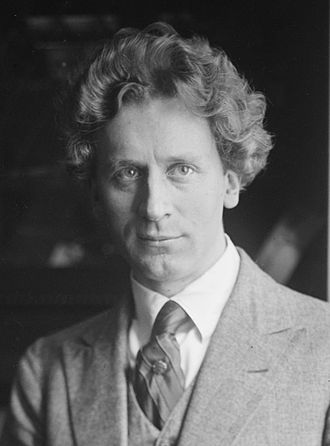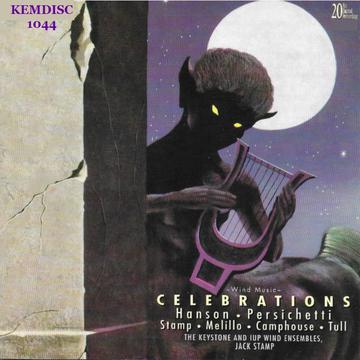
Grainger, Percy
Percy Grainger (1882 -1961) was a picturesque nationalist who tried to retain something of the original flavor of British folk songs and their singers by strict observance of peculiarities of performance, such as varying beat lengths and the use of “primitive” techniques such as parallelism. Born the son of an architect in Brighton, Victoria, Australia, Percy Grainger was a precocious pianist, and the proceeds of a series of concerts, given at the age of twelve, enabled him to go and study at Frankfurt for six years, after which he began his European career as a concert pianist, settling in London in 1901. He came to the U. S. in 1915 and enlisted as an army bandsman at the outbreak of World War I. He became a United States citizen in 1919. It was during his stay in England that he became passionately involved in collecting and arranging folk songs and country dances. It has been related that “Percy never had the slightest hesitation in pumping anybody he came across. He would go up to a man ploughing and ask him if he knew any songs and as often as not the man would stand for a minute or two and sing him a song in the most natural way in the world.”
Irish Tune from County Derry
The Irish Tune is based on a tune collected by a Miss J. Ross of New Town, Limavaday, County Derry, Ireland, and published in “The Petri Collection of Ancient Music of Ireland” in 1885. Grainger’s setting was written in 1909 and was dedicated to the memory of Edward Grieg, with whom Grainger developed a strong friendship. The “perfect” melody and the rich sonorities of the arrangement have kept the Irish Tune in a favored position for decades.
Lincolnshire Posy
Conceived and scored for wind band early in 1937, this bunch of “musical wildflowers” (hence the title Lincolnshire Posy) is based on folk songs collected in Lincolnshire, England. Each of the movements is intended to be a kind of musical portrait of the singer who sang its underlying melody. The composition begins with Lisbon Bay, a sailor’s song in a brisk meter with plenty of “lilt.” Horkstow Grange, the second movement, is named for a pleasantly situated eighteenth-century farm house that stands beside the B-204 road to South Ferriby. Subtitled The Miser and his Man – a local Tragedy, the tune is a requiem for an oppressive overseer and his “man”, who couldn’t take the abuse any longer and used a club on the miser. Next, The Brisk Young Sailor is a simple tune that tells of one “who returned to wed his True Love.” Lord Melbourne is a war song with the lyrics “I am a noble Englishman, Lord Melbourne is my name. I never lost any battle, but won great victory.” The set is completed with The Lost Lady Found, a “Dance Song” that tells the story of a woman stolen by gypsies. Her uncle is suspected of doing away with her in order to acquire her estate. Her sweetheart, searching everywhere, eventually finds her in Dublin. Returning home, the pair arrives in time to prevent the uncle’s hanging for the alleged crime. The town rejoices.

